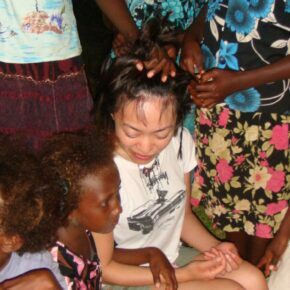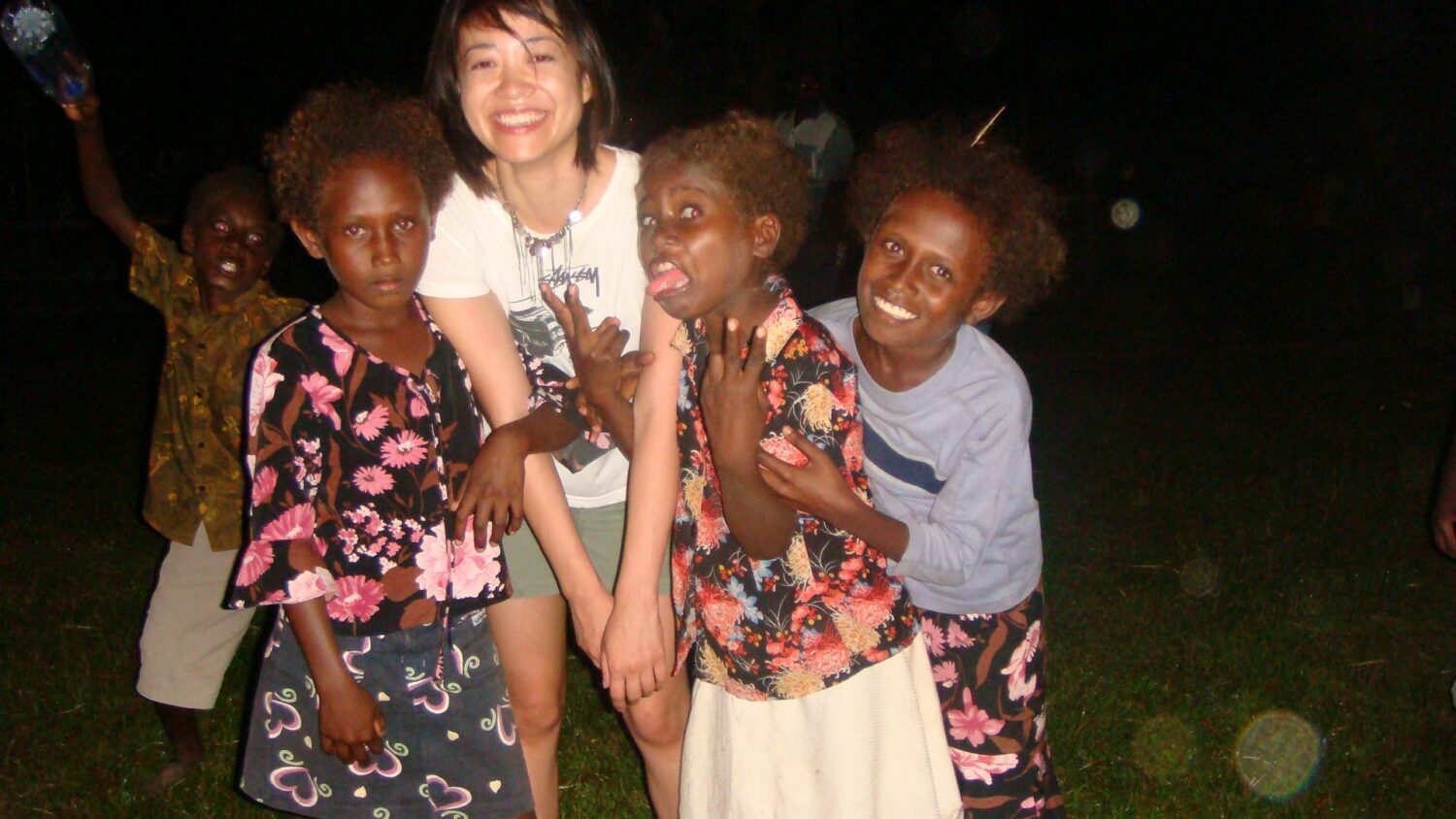Kawai Yeung offers valuable advice about navigating cultural difference and moments of challenge and uncertainty, and creating a viable career from the desire to do good in the world.

Dear Kawai,
I know you’re at a crossroad in your career, and I’m hoping this letter will give you some relief and guidance.
It’s been seven years since you graduated from university – you’ve worked very hard in large practices, spending many late nights and weekends to hone and perfect what you do. You love your work and your team! After all, you’ve chosen to stay in Australia while the rest of your family has gone back to Hong Kong. You believe Australia is where you can be more creative, work on more meaningful projects, and not be bucked solely by commercial demands. A lot of your Asian peers from Uni days have moved back to their home countries, where they would immediately have a team of draftsmen working under them. At work, you’re given a great level of responsibility and exposure to projects, but often you feel you don’t really belong – English is not your first language, you don’t follow footy or cricket, you can’t even take more than a drink every two hours. While your workplace is very multicultural, you don’t see fellow Asian people or those born in non-English speaking countries being promoted to senior levels – yet.
You’ve always tried to keep your options open – by completing a commerce degree and also by working on a couple of houses on the side, in preparation for that one day you might want to have your own practice. These are all great moves and will prove to be very useful one day. Every once in a while you will wonder if architecture is a worthwhile career path to stick with, as you see friends working in other fields who earn much more money and seem to achieve better work/life balance.


Trips to India, Tibet and the Solomon Islands will expand your horizon – you will feel pained to see the erosion of culture and traditional way of life in these developing worlds, catalysed by globalisation, yet you will see just how architecture can transform communities to create positive change.
You have found your calling.
At times it may feel like a very uncertain path. How can you forge a career/practice that focuses on doing good, and still be financially viable? Here is some advice and good news at moments when you feel despair:
- Life is a long game yet there are no short cuts. Hone your skills but work smart. Hard work does not mean long hours. It means having the discipline to take a step back and be strategic, even when it’s not in your natural comfort zone. Stay focused. Prioritise the most important thing you need to do.
- Follow your moral compass – and you can become part of the change. You will see other Asian colleagues rise to very senior/executive positions, and others have very successful practices. It might take longer, and I know it has been very frustrating seeing big talkers taking credit for other people’s work and being promoted, but eventually smart practices and clients see through that.
- Your work will speak for itself, but it can’t if other people don’t know about it. Practise communicating positively – you can do that while being your humble self too.
- You will find strength in what seems to be your weakness. Your ‘quietness’ – your tendency to listen, to observe, and ask thoughtful questions – will turn out to be an asset while working with communities and co-designing with them. Living with your grandmother will also allow you to connect with elders with ease.
- It is important to empower yourself with knowledge and skills, but it is just as important to scout out who are the best people to approach and seek advice in different areas when you need it. You will form lasting professional friendships. It’s no less important than the overtime you put in to help your team.
- You have not thought about this yet – build your career up as much as possible before having kids. That doesn’t mean your title or role, or the size of your practice, but the breadth of experience, body of work, and the network you have. These are the things you can pick up again. Be accepting that you will have less time. You can be more and more efficient, but there’s a limit. Allow that time to be a wonderful opportunity to form special bonds with fellow young incredible mums.
- Lastly, don’t forget to spend time to design your own life and look after your loved ones. That is your most important project.
I look forward to writing to you again in 10 or 20 years’ time.
Lots of love,
Your older, wiser self
Ka Wai Yeung co-founded Kaunitz Yeung Architecture with her husband, David Kaunitz, to focus on facilitating high quality architecture that drives positive social change in some of the most disadvantaged communities of First Nations People in Australia and the Asia-Pacific. Underlying this is a deep commitment to respectful two-way learning, co-design and local construction. Her projects include cultural and art centres, health and aged care facilities, schools and housing. In delivering these projects, training and employment create livelihoods for the communities she serves, and support continuation of their traditional way of life. Her projects have received local and international recognition including most recently the prestigious humanitarian architecture award, the International Union of Architects Vassilis Sgoutas prize for Implemented Architecture Serving the Underprivileged.




















